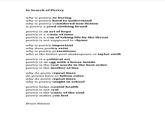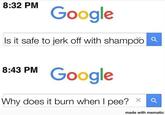
About
Google is an American multinational internet and software corporation invested in internet search, cloud computing, and advertising technologies. It is best known for a number of Internet-based services and applications, including its search engine and the video-sharing platform YouTube.
History
Google was created by Larry Page and Sergey Brin as part of their student research project[1] while attending Stanford University together in January 1996. In the quest of a search engine that could look at relationships between websites, they developed a link analysis algorithm called PageRank[2] that assigns a numerical weight to every element of a website based on the number of pages about a topic and their relevance. Originally named "BackRub" for the site's investigation into backlinks, Google's domain name was purchased on September 15th, 1997. In the following years, Google consistently gained on its competitors and by June 2000, it had become the world's largest search engine with an index of one billion webpages.
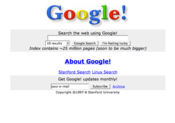


In 2005, Google changed its birthday from September 7th to September 27th to make it coincide with the announcement of the record number of pages that the search engine had indexed. In 2006, the word "Google" was recognized as an English verb to the Merriam-Webster Dictionary,[3] defined as: "to use an Internet search engine" and "to search for the name of someone on the Internet to find out information about them."
Googlization
Googlization is a neologism used to describe the expansion of Google’s search technologies and aesthetics into more markets, web applications, and contexts, including traditional institutions such as the library. The rapid rise of search media, particularly Google, is part of modern media history and draws attention to issue of access and to relationships between commercial interests and media.
Online Presence
SOPA / PIPA Protest
On Tuesday, January 18th, 2012, Google censored their logo with a black box in protest of SOPA and PIPA.[34] Clicking the censored logo would lead the user to a page where you can sign a petition to stop the bills from passing congress. The page was later changed to thank the seven million Americans and the congress for standing up against SOPA and PIPA.

Top-Level Domain Registration
On May 31st, 2012, American computer scientist and Google's Chief Internet Evangelist announced via Google Blog[35] that the company has applied for ICANN (Internet Corporation for Assigned Names and Numbers) registration of at least new 50 top-level domains, the full list of which is expected to be unveiled on June 13th, 2012. According to the blog post, the pending application consists of trademark-related domains (.google), Google app domains (.docs), User experience-related domains (.youtube) and creative domains (.lol).

With each application costing $185,000 (USD), Google's domain registration is estimated to cost approximately $9.25 million dollars, according to Ad Age[36] and other news reports.[37] Since the ICANN's repeal of most restrictions on the names of generic top-level domains in June 2011, more than 1,900 applications for arbitrary domains like .music and .website have been submitted to the organization.
Alphabet Inc.
On August 10th, 2015, Larry Page announced a major reorganization of Google under Alphabet Inc[47]., the new parent holding company that will be run by its current leadership. In an official statement released via Google's blog, Page explained the company's restructuralization as a step towards more efficient management of its core businesses, including the search engine, YouTube, Android, Chrome and web advertising businesses under the leadership of Sundar Pichai,, and improved focus on research and development of its newer ventures in next-generation technologies, such as wearable smart devices, robotics and the self-driving car, and other startup ventures.

2018 Walkout
On October 25th, 2018, The New York Times[52] published an article titled "How Google Protected Andy Rubin, the 'Father of Android'," which reported that Google paid Android developer Andy Rubin $90 million when he left the company in 2014 although he had been accused of sexual misconduct.
On November 1st, 2018, Google employees from around the world staged a walkout in protest of the way the company handles numerous complaints regarding sexual misconduct. That day, several photographs of employees walking out of various Google locations were posted to Twitter with the hashtag "#GoogleWalkout"[53] (shown below).


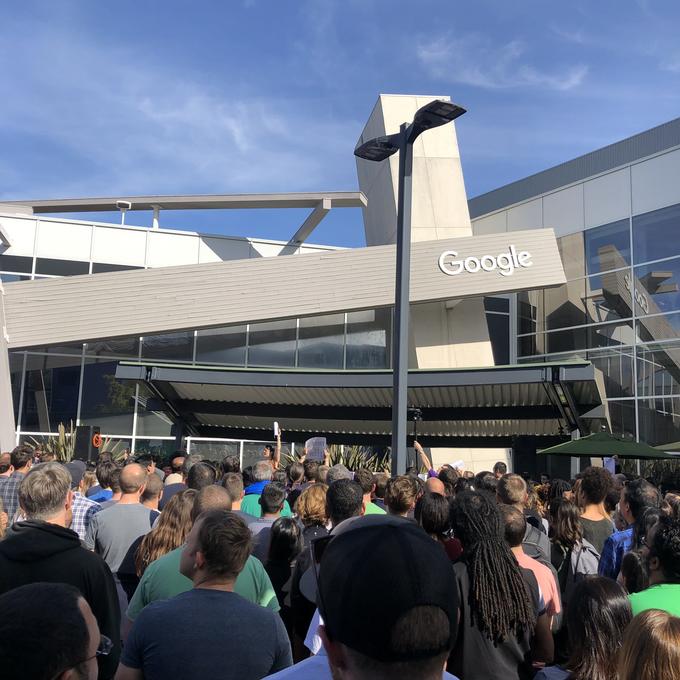
2018 House Judiciary Committee Hearing
On December 11th, 2018, the United States House Judiciary Committee held a hearing examining Google's data collection practices, during which Google CEO Sundar Pichai delivered sworn testimony.
Meanwhile, politics reporter Joe Perticone posted a photograph of Alex Jones in a hallway prior to the hearing, claiming that police threatened to arrest him if he did not "calm down" (shown below).[55]

Also that day, Twitter user @aaronjmate uploaded a clip from the hearing regarding that Russiagate controversy, during which Pichai claimed that the company discovered that Russia-linked accounts purchased $4,700 worth of ads on Google (shown below).
Whenever Russiagate peddlers are confronted w/ the actual facts, it doesn't go so well. Here's
RepJerryNadler</a> asking Google CEO Sundar Pichai about "the full extent" of Russian meddling activity on its platforms in 2016. The answer: Russian-linked accounts spent $4,700 on ads. <a href="https://t.co/MiZaq8HBvS">pic.twitter.com/MiZaq8HBvS</a></p>— Aaron Maté (aaronjmate) December 11, 2018
Meanwhile, Twitter user Tyler Kingkade tweeted several photographs of a Twitter user @wamandajd[54] dressed as the Monopoly Man (shown below).
hello this man's mustache at the Google hearing is getting bigger pic.twitter.com/1T7K8MUXFM
— Tyler Kingkade (@tylerkingkade) December 11, 2018
Additionally, journalist Aaron Rupar tweeted a video in which Congressman Steve King raises concerns about iPhones, to which Pichai responds "Congressman, iPhone is made by a different company" (shown below).
After
SteveKingIA</a> raises inscrutable concerns about iPhones, Google CEO Sunday Pichai patiently informs him, "Congressman, iPhone is made by a different company." <a href="https://t.co/TiNZ1t3VRo">pic.twitter.com/TiNZ1t3VRo</a></p>— Aaron Rupar (atrupar) December 11, 2018
Features
Search Experience
Google has implemented special features[7] to make searching easier over the years, making things like weather, stock quotes, movie times, definitions, and flight tracking available within the search results so users do not have to click through to another page to see them. In July 2001, Google launched its Image Search feature that offers access to 250 million images on the web. In September 2010, Google Instant was launched, which delivers instant results while you type in the keyword and thus speeds up search times by 2-5 seconds.
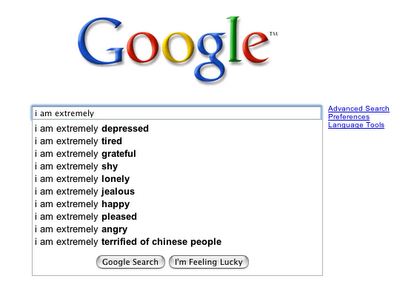
Google Search
Though initially just a search engine site, Google has expanded to include other products[9] such as a document creating and sharing platform (Google Doc), e-mail (Gmail), full text book search (Google Books), maps (Google Earth), a scholarly paper depository (Google Scholar), a translation service (Google Translation), and their own web browser (Google Chrome).[10]

YouTube
In 2006, Google announced that it would be purchasing the popular video sharing site YouTube for $1.65 billion in a stock-for stock transaction.[13] Although YouTube still operates independently of Google, it is now part of Google's services and is able to be used by anyone with a Google account.

Google Trends
Google Trends is a public search data analytics tool that shows how often a search term is entered in relation to the total volume of Google search queries across the world. In addition to visualizing the ebb and flow of a search term's popularity over time (from 2004 and onward), Google Trends also enables its users to cross-compare the trends of up to five search terms, keep track of news media coverage relating to the search terms and break down the popularity by countries, regions, cities and language.
On August 5th, 2008, Google released Insights for Search, an advanced service for displaying search trends data, as a supplement to Google Trends. On September 27th, 2012, Google Insights for Search was merged into Google Trends. On May 22nd, 2013, Google unveiled a revamped version of the service with more in-depth features, including Hot Searches, a daily trend chart listing each day's most searched keywords, and Top Charts, a hub page that provided at-a-glance view of top 10 most searched keywords in 40 different categories spanning across TV entertainment, cinema, music, sports, education, business and brands.
Google Chrome
Google Chrome is a freeware web browser developed by Google that uses the WebKit layout engine. It was first released as a beta version for Microsoft Windows on September 2nd, 2008, and the public stable release was on December 11th, 2008. As of June 2012, Google Chrome has 32.76% worldwide usage share of web browsers, making it the most widely used web browser, according to StatCounter.

Google Plus
Google Plus is the company's fourth-generation product in social networking, combining the elements of Orkut (launched in 2004), Google Friends Connect (launched 2008) and Google Buzz (launched 2010). It also integrates other existing apps like Google Profiles and Picasa. The service was launched on June 28th, 2011 in an invitation-only beta phase, but they were soon suspended due to high volume of account sign-ups. On September 20th, 2011, Google+ was opened to everyone 18 years of age or older without the need for an invitation.[8]
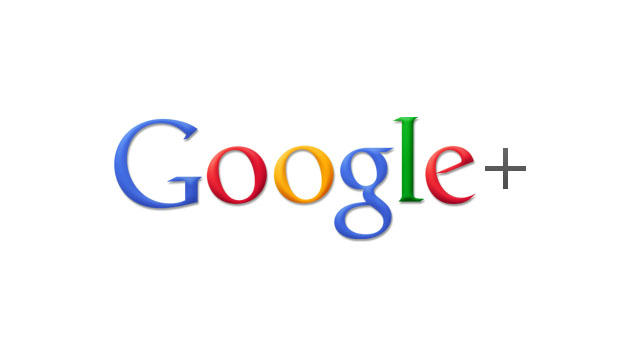
Google Doodles
Google Doodles are artworks and widgets that are occasionally featured in substitute of the official logo on the homepage in observance of holidays and other commemorative events. The first Google Doodle[12] was put in place in 1998 during the Burning Man Festival[13] as a way for the co-founders Page and Brin to notify their users that they were away for the weekend in case of a server crash. Since then, these have evolved from still images into interactive applications ranging from musical instruments like Google Guitar and Google Morg to mini games like Pac Man and Olympic sports.

Google Doodles later became interactive by the use of HTML5. The first instance of a interactive Google Doodle was "Google Instant Launch" on September 6th, 2010. The Doodle was the Google logo made up of circular particles that, when the cursor was moved around on it, would spread the particles across the home screen. Although Google Doodles were meant to be used only sparingly, there was a drastic increase in production of doodles in 2011.[20] Google also keeps a list[21] of all its doodles.
Search Engine Easter Eggs
Google is also known for planting easter eggs[19] within certain search criteria on occasions. such as April Fool's Day.[14] For instance, googling "Tilt" or "Askew" will cause the page to load at an angle, or Googling "Do a barrel roll" will cause the page to spin 360˚ around. When you search for anagram, it will ask if you meant nag a ram. In addition, Google's search engine can recognize various pop culture references in the keywords and respond accordingly, such as a line of text reading "the answer to life the universe and everything = 42" when "the answer to life the universe and everything" is searched. In addition, Google Search's calculator function recognizes many humorous units of measurement like beard-second and provides numerical or scientific responses to select keywords.
- Searching for Anagram yields the suggestion "Did you mean Nag a ram?"
- Searching for Do a Barrel Roll or Z or R Twice triggers a 360 degree spin of the screen.
- Searching for Recursion recursively runs Google searches for "recursion."
- Searching for Tilt triggers the screen to tilt slightly to the right.
- Searching for Binary changes the number of search results in binary sequence.
- Searching for Zerg Rush triggers a storm of "O"s that wipes the search results page clean.
- Searching for ASCII Art turns the Google logo display into ASCII.
Google Zeitgeist
Starting in December 2001[15], Google publishes an annual zeitgeist, "the spirit of the times," showing how search on their site represents the general cultural and intellectual climate of that year. In their premiere collection[16], Google took the information from 150 million searches per day and made a timeline[17] of that year's search highlights and 12 top-ten lists in categories ranging from people and movies to brands and news resources. For the review of 2011, Google launched a separate website[18] for that year's data, with interactive charts where users could compare topics to each other and visualize the data broken down into weekly and monthly charts. Google also published a video of that year's top events.
Related Memes
Googlewhacking
Googlewhacking is the practice of discovering search keywords or phrases that consists of only 2 words and only brings up a single result. These words, in question, must be real words that are in the dictionary. True Googlewhacks do not last long because once they are published, because there would be two results if you Googled it. One being the original Googlewhack, the other from the site it was published on. The term was coined by Gary Stock on January 8th, 2002 via his website UnBlinking.[8] When Google stopped providing definition links in November 2009, it resulted in Googlewhacking going offline.
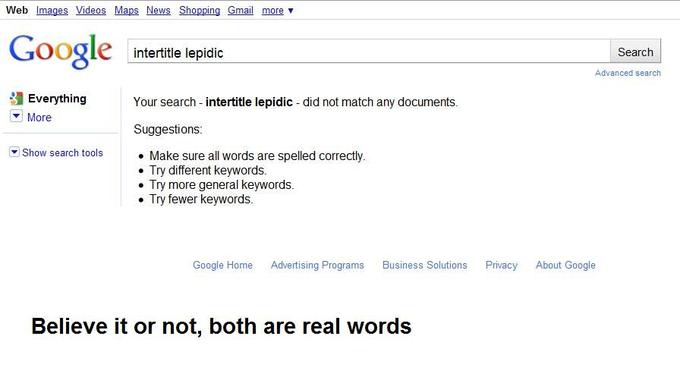
Google Bombing
Google Bombing is the practice of enhancing any website's search engine optimization (SEO) profile by repeatedly inputting the keyword associated with the destination. With enough mass participation, Google bombing can bump the desired content to a higher page ranking in search results. This somewhat subversive practice can be employed for a variety of purposes: to drive traffic to a business, share political ideology, or even just for the lulz. The earliest known Google Bomb on record reportedly took place in 1999 with the search query for "more evil than Satan himself" yielding Microsoft's website as the top result.

Let Me Google That For You
LMGTFY, short for "Let Me Google That For You" is a website that performs Google search queries for the user. Created by developers Jim Garvin and Ryan McGeary in November 2008, the service is used sarcastically to demonstrate how to perform a Google search for those who are supposedly unable to use the search engine on their own. The initialism is also used during online conversations to poke fun at the redundancy of someone else's question that could've been easily resolved by searching for answers on Google, in similar vein to the use of RTFM ("Read the Fucking Manual").
User A: How do we know that Fox News isn’t fair and balanced?
User B: LMGTFY.

Google Search Suggestions
Google Search Suggestion Screenshots are snapshots of Google's suggested search queries that contain odd questions or phrases. Since the introduction of the feature in August 2008, hundreds of screenshots depicting often hilarious sentences and questions in the suggested results have been uploaded and shared online.

MapCrunch
MapCrunch is a website which allows users to be virtually transported to a randomly selected street view location in Google Maps. The website has inspired a participatory online game in which the player must find their way to the nearest airport from a spawned location. Due to the fact that the initial location chosen is random, the game has proven to be notoriously frustrating and time consuming. The game saw an upsurge in popularity from Tumblr in February 2012, when players began writing about their experiences and uploading pictures from their searches.
Google Search Stories
Google Search Stories, also known as "Parisian Love Parodies," are a series of parody advertisements mimicking the format of Google's first TV commercial "Parisian Love" (shown below, left) which aired in the United States during Super Bowl XLIV in November 2009. The first parody was uploaded by YouTuber searchstory on December 2nd, 2009, featuring a search story about a surprise birthday party resulting in a heart attack (shown below, right).
Google Translated Songs
Google Translated Songs is a YouTube video fad in which people record Google Translate's text-to-speech narration of song lyrics over an instrumental version of the song. The earliest known instance of Google Translated songs was uploaded by German YouTuber quelllympfe on April 4th, 2010, featuring the lyrics of Eminem's 1999 rap single "My Name Is."
Fake Google Hangouts
Fake Google Hangouts are messages published on Google's social networking service in the style of stream notifications that are automatically generated after a user has completed a “Hangout” group video chat session. The first fake Google Hangout notification message was created by the director of YouTube Next Lab Timothy Shey, which read: "Tim Shey is not hanging out with you right now" on July 7th, 2011.

Project Glass Parodies
Project Glass Parodies are a series of mock video advertisements centered around Google's Project Glass, a research and development program which aims to build an augmented reality head-mounted display unit. Since the release of its promotional video in April 2012, the project has inspired a series of parody videos and image macro commentaries.
Policies
Privacy
On January 24th, 2012, Google announced[25] a change to their privacy policies[26] that would go into effect on March 1st. stating that they were replacing the sites over 60 different policies with one overarching document to cover all of their products and brands. The goal of the consolidation is create a better user experience by taking information from all of its platforms, including email, search, and calendars, to help deliver more refined search results and alert users to things they might miss.[27] Users will not be able to opt-out of this change.[28]
The new policy was heavily critiqued[28] for compiling cross-site data to create a better composite of its users. Most services like Gmail, Calendar, and Documents are already connected, but the new policy condenses the process, in addition to inclusion of YouTube and incorporating personal data into search tasks.[29] Many critics see the inclusion of Google Plus into the search algorithm, announced a few weeks previous, as an invasion of privacy.[30]

U.S. Representative Ed Markey and Senator Richard Blumenthal both criticized[31] the inability to opt-out and the US Federal Trade Commission is expanding its antitrust probe[34] to investigate into Google+ as well. Across the globe, Ireland's Data Protection Agency and France's National Commission for Computing and Civil Liberties both announced[32] that they would be looking into the legality of the new policies in their respective countries.
Censorships
On June 17th, 2012, Google[40] released the latest edition of its Transparency Report, which disclosed various requests the company had received for user data and content removal in the second half of 2011. The report revealed that Google was asked by government agencies from around the world to remove content like YouTube videos and search listings, but omitted requests from countries with heavy Internet restrictions like China and Iran. The report revealed that the United States government requested more user data than any other country with 6,321 requests from July to December 2011.
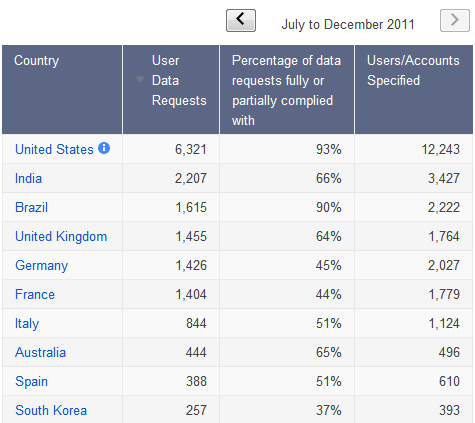
In an official blog[39] post regarding the report, Google senior policy analyst Dorothy Chou called the requests "troubling" and noted that there had been a marked increase in requests to remove political speech from the site. The findings of Google's Transparency Report were subsequently covered by several news sites including The Atlantic[41], CNN[43], Reuters[44] and the New York Times,[45] as well as the tech news blogs like Tech Crunch[42] and NMA TV.
- Spanish regulators requested the removal of 270 search listings to numerous websites criticizing public figures.
- Canadian customs officials requested the removal of a YouTube video of a person urinating on a Canadian passport before flushing it down a toilet.
- Pakistani officials asked Google to remove six videos satirizing the Pakistan Army and several politicians.
- Poland's Agency for Enterprise Development asked for the removal of a search result that criticized the agency.
- The Thailand Ministry of Information, Communication and Technology requested the removal of 149 YouTube videos insulting the monarchy.
- Several United States local law enforcement agencies requested the removal of an unnamed blog and 1,400 YouTube videos, some of which depicted acts of police brutality.
Traffic
Google is ranked number one both globally and in the U.S. on Alexa[4], Compete[5], and Quantcast[6], averaging over five billion visits per month.
Search Interest
Search for Google has been consistently on the rise, with a major peak in September 2005. This could be due to the major database expansion[23] put into place that month in celebration of the site's seventh birthday. This expansion made the index 1000 times its previous size and three times larger than any competing search engines at the time.
External References
[3] Google Blog – Do You "Google?"
[4] Alexa – Google.com
[5] Compete – Google.com
[6] Quantcast – Google.com
[7] Google – Improve Your Search Experience
[8] UnBlinking – How Googlewhack Began
[9] Google Options -More Google Products
[10] Wall Street Journal – Google's Chrome Surpasses Firefox as No. 2 Browser to Internet Explorer
[11] Google – More Google Products
[13] Google – Google To Acquire YouTube for $1.65 Billion in Stock
[14] Wikipedia – Google Doodle
[15] Wikipedia – Google's Hoaxes
[16] Google – Year-End Zeitgeist 2001-2010
[17] Google – 2001 Year-End Google Zeitgeist
[18] Google – Zeitgeist 2001
[19] Google – Zeitgeist 2011
[20] Tips Tricks Tweaks and Hacks – A Mega List of 56 Google Easter Eggs
[21] Wikipedia – List of Google Doodles in 2011
[23] Wikipedia – List of Google Doodles
[24] Google Blog – We wanted something special for our birthday…
[25] Google – Policies and Principles
[26] Google – Preview: Privacy Policy
[27] PC World – Google Revamps Its Myriad Privacy Guidelines Into One Document
[28] Washington Post – FAQ: Google’s new privacy policy
[29] Washington Post Business – Google announces privacy changes across products; users can’t opt out
[30] National Post – Why the Internet is freaking out about the new Google privacy policy
[31] MSNBC – Google's privacy policy change: What the fuss?
[32] Bloomberg Businessweek – Google’s Privacy Policy to Be Assessed by Ireland, France
[33] PC Mag – Google's Privacy Policy: A Wakeup Call, But That's It
[34] Washington Post – Google privacy policy unleashes criticism from regulators
[35] Washington Post – GOOGLE BLACKS OUT: ‘Censored’ logo goes dark to oppose SOPA/PIPA legislation
[36] Google Blog – Expanding the Internet domain space
[37] Ad Age – Google Applies for More than 50 New Domains Including .LOL and .YouTube
[38] LA Times – Google spends more than $9 million on top-level domains
[39] Blogspot – More transparency into government requests
[40] Google – Transparency Report
[41] The Atlantic – Google's Transparency Report and What It Reveals About the Company's Role in the World
[42] Tech Crunch – U.S. Content Removal Requests Increased 103%
[43] CNN – Google reports alarming rise in government censorship requests
[44] Reuters – govt requests to censor content alarming
[45] New York Times – Google Getting More Requests From Democracies to Censor
[46] Official Google Blog – G Is For Google
[47] Wall Street Journal – Google Creates Parent Company Called Alphabet in Restructuring
[48] CNNMoney – Meet Alphabet – Google's new parent company
[49] Google – Google's 18th Birthday
[50] The Telegraph – When is Google's birthday – and why are people confused?
[51] The Independent – When is Google’s birthday? The big problem with the company's celebratory doodle
[52] The New York Times – How Google Protected Andy Rubin
[53] Twitter – #GoogleWalkout
[54] Twitter – @wamandajd
[55] Twitter – @JoePerticone

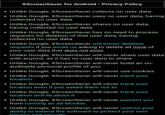



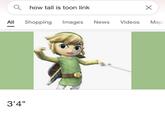





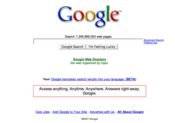
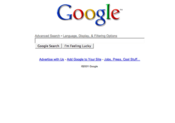
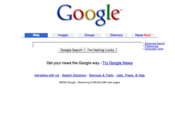
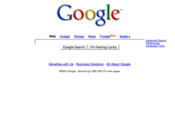


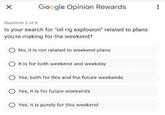
![probably bubsy say: wrong in everthing Post Dexerto @Dexerto Google is buying 6-7 nuclear reactors to power its Al Traducir post Seguir Google 11:52 a. m. - 17 oct. 2024 - 3M Reproducciones 664 2 mil 23 mil 1 mil <]](https://i.kym-cdn.com/photos/images/list/002/927/922/295.png)
